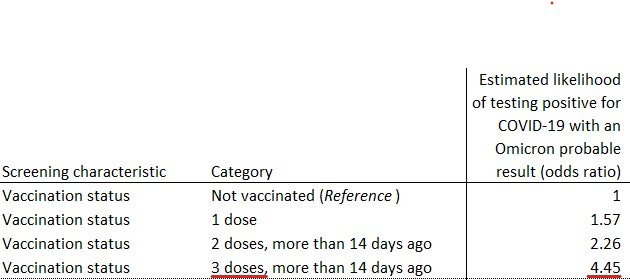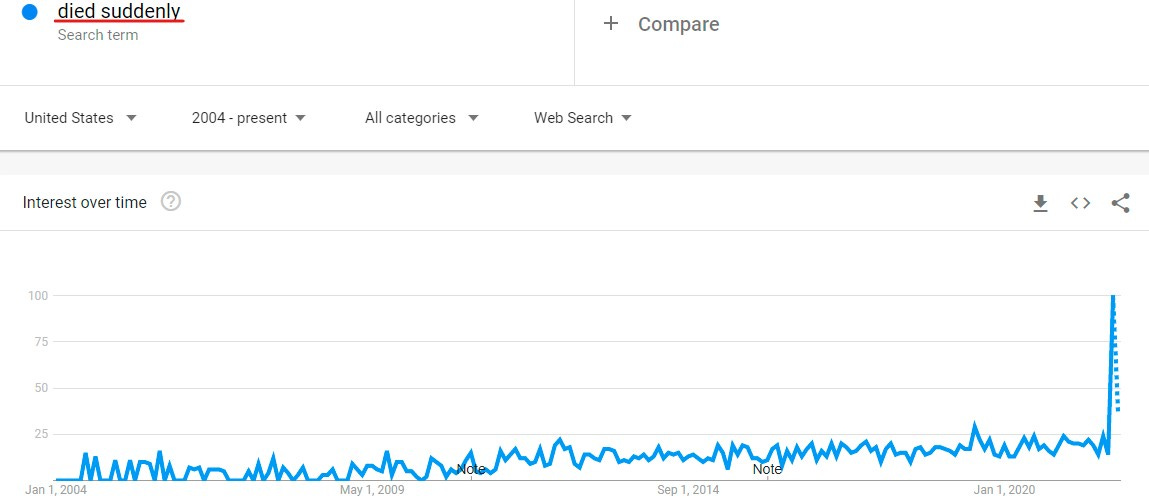Have We Gotten Anywhere?
A lot of us "did the right thing." Compared to a year ago, where are we now?
As I type this, it’s Christmas Day here in Montreal, QC, Canada.
I don’t think things are much different than they were a year ago, in 2020.
Despite most of us doing everything that we were told–social distancing, masking, hand-washing, and being double- and booster-vaxxed—still, this holiday season seems like a broken promise.
It is a broken promise.
I can hear you now: “But, Omicron’s the new variant.”
Ah, yes…Omicron.
Hold that thought.
Perhaps the Most Important Thing I Can Say
Don’t fear.
That’s probably the most important thing I can say. The media, I feel, has given Omicron more attention than it deserves.
Here’s why I say, Don’t fear:
My understanding is that, through natural selection, a virus can generally mutate in only one of two directions:
Either more deadly and less contagious, or
Less deadly and more contagious
(Yes, I suppose other combinations are possible, but let’s stick with those two.)
The explanation I’ve heard is that a virus wants to survive, and it can only do that if it can spread to new hosts (people), so it doesn’t want to kill its host too quickly, otherwise, it won’t get to spread as easily.
That’s why the mechanics of natural selection may (not always, but may) favor the variants that are less deadly and more contagious.
From what I’ve heard (and probably what you’ve heard by now), it seems that Omicron is of the second combination: less deadly (good), and more contagious (which is not as good, but the upside is that if you’re in the right demographic, you may build some immunity to it).
Also, case numbers don’t mean hospitalizations.
The Vaccine Promises
What were you told when you got the vaccine?
I remember hearing that these vaccines would be our way “back to normal.”
I also personally remember listening to a news segment where it said that doctors were convinced that the vaccines would be effective against future strains.
Okay. They were obviously wrong, but I digress.
You may have heard that vaccine effectiveness declines (maybe even dramatically) over time.
(There are numerous resources that indicate this. I found this LA Times article, titled, Study Shows Dramatic Decline in Effectiveness of All Three COVID-19 Vaccines Over Time. It’s based on a study published in the journal Science, titled SARS-Cov-2 Vaccine Protection and Deaths Among Us Veterans During 2021.)
But you know what’s shocking?
Around December 23rd, 2021, a pre-print (non-peer-reviewed study) was released.
And while non-peer-reviewed studies may need verification by other studies, this one has generated a lot of discussion.
It suggests that if you’re more than 90 days beyond your second Pfizer dose (and, presumably, haven’t received a booster), then vaccine effectiveness against Omicron is actually negative—not 0, but negative! In the red!
Here’s the tweet:


Okay.
The longer it’s been since your second dose (specifically 90+ days), the more likely you are to test positive for Omicron.
I’m going to move on to another source, but let’s not forget that the notion of negative vaccine effectiveness is a profound one that deserves it’s own exploration.
Let’s Now Turn to Another Source: the U.K.’s Office for National Statistics
Here’s a tweet from Reuters Fact Check:


Tripple-Vaxxed Are ~4.45 Times As Likely To Test Positive for Omicron Than the Unvaccinated
That tweet links to this article: Fact Check-Article Examining the Probability of Omicron Variant Breakthrough Cases Is Misinterpreted Online.
The opening sentence of this article is quite interesting:
“New data from the U.K.’s Office for National Statistics (ONS), says that the triple-vaccinated are 4.5 times more likely to test positive for Omicron than the unvaccinated and that double-vaccinated individuals, were 2.3 times more likely to have Omicron over other variants.”
Well, to be completely accurate, it’s 4.45 times, and it’s as likely, not more likely.
But that’s just my attention to detail.
Anyway, wow. That’s…eye-opening.
Look at that again. Let it sink in.
4.45 times as likely.
If you’re triple-vaccinated, you’re more likely to test positive for Omicron (the current variant of concern) than an unvaxxed person.
The table below is a partial screenshot of a spreadsheet provided by the Coronavirus (COVID-19) Infection Survey, UK: Characteristics Related to Having an Omicron Compatible Result in Those Who Test Positive for COVID-19.
Now, I have heard that the boosters aren’t necessarily Omicron-specific, but the thing is, these boosters haven’t even been around that long, and yet, despite their recency, they don’t seem to be offering a beneficial level of protection above the reference (the reference being not vaccinated).
Now, I don’t want to be accused of conflating things. Different variants should be looked at separately. Having a booster may—and I repeat, may—offer some protection against other variants.
My attention is on the current VOC (variant of concern), which is Omicron.
A Few Questions I’d Like to Ask (And Maybe You Can Provide an Answer to)
Anyway, here are a few questions I’d like to ask:
If (as suggested in the table above), double- and triple-vaccinated people are more likely to test positive for Omicron, even if it’s been as little as 14 days ago, what does it say about the vaccines and boosters?
(That said, we should consider behavioural factors: due to restrictions, it’s safe to assume that those who are two- or boost-vaccinated are moving about more often than those who are not, and hence, there are more contacts, and more likelihood of transmission.)
To me, it seems that the Omicron may demand a variant-specific dose. So…why are some people eager to get the booster, when it’s been suggested that an Omicron-specific dose may be what’s needed?
It’s at this point that someone may say, “Hey, the booster gives added/recharged protection,” and while that might be the case for other variants, I again draw your attention to the chart above and the current VOC (Omicron): in as little as 14 days post-boost, you’re measurably more likely to test positive for Omicron than a two-, one-, or no-dose person.
A Final Question I’d Like to Ask Is This…
…What do we do now?
A lot of us have complied with everything that was asked of us (some to a greater extent than others).
We were promised that these vaccines would be the gateway to “going back to normal,” but somehow, “getting boosted” has given us a seemingly false sense of security.
A lot of us thought that this Holiday season would be different.
Elsewhere On Google Trends…
…the search term died suddenly has seen quite a spike in recent months.
Hmmm…interesting.
What are your thoughts? Please comment in the comments section below.
Citations and References
USA Today. Omicron Could Be More Contagious, Less Dangerous. That Would Be ‘Good News for the Human Race.'
LA Times. Study Shows Dramatic Decline in Effectiveness of All Three COVID-19 Vaccines Over Time
Science. SARS-COV-2 Vaccine Protection and Deaths Among Us Veterans During 2021
U.K.’s Office for National Statistics. Coronavirus (COVID-19) Infection Survey, UK: Characteristics Related to Having an Omicron Compatible Result in Those Who Test Positive for COVID-19.
Google Trends. died suddenly; US, 2004 - present.





Great article DK, well researched and compassionate view point. Look forward to reading more from you!
DK- These are some importantly questions on an equally important topic. I appreciate you bringing this to light.